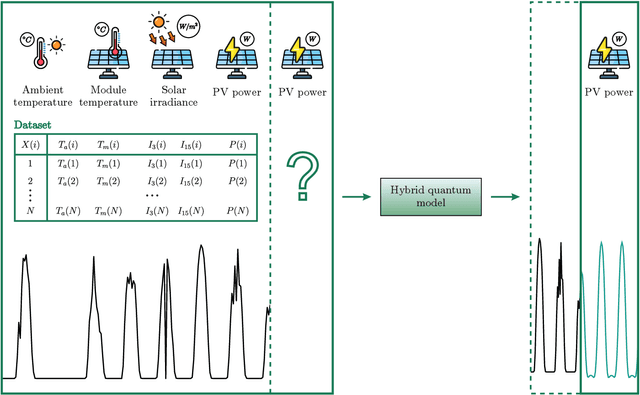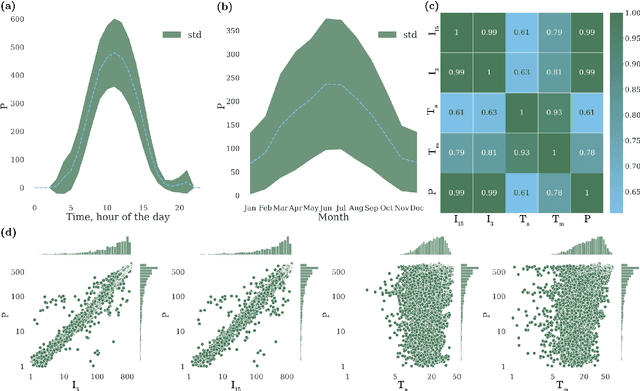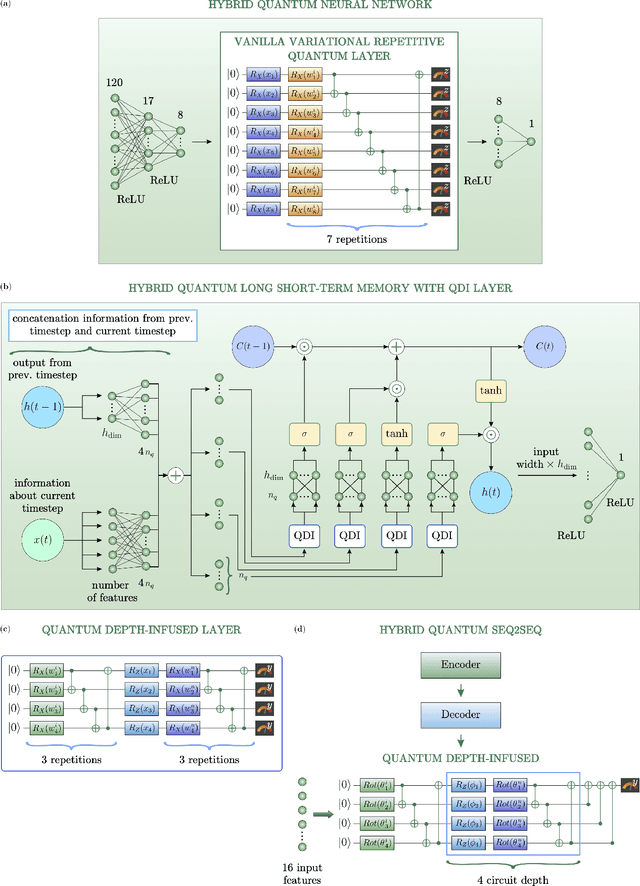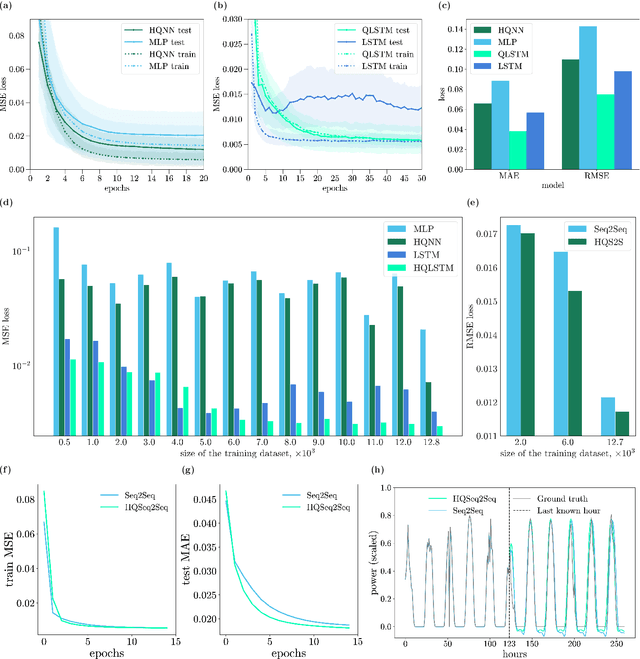Arsenii Senokosov
Hybrid Quantum Recurrent Neural Network For Remaining Useful Life Prediction
Apr 29, 2025



Abstract:Predictive maintenance in aerospace heavily relies on accurate estimation of the remaining useful life of jet engines. In this paper, we introduce a Hybrid Quantum Recurrent Neural Network framework, combining Quantum Long Short-Term Memory layers with classical dense layers for Remaining Useful Life forecasting on NASA's Commercial Modular Aero-Propulsion System Simulation dataset. Each Quantum Long Short-Term Memory gate replaces conventional linear transformations with Quantum Depth-Infused circuits, allowing the network to learn high-frequency components more effectively. Experimental results demonstrate that, despite having fewer trainable parameters, the Hybrid Quantum Recurrent Neural Network achieves up to a 5% improvement over a Recurrent Neural Network based on stacked Long Short-Term Memory layers in terms of mean root mean squared error and mean absolute error. Moreover, a thorough comparison of our method with established techniques, including Random Forest, Convolutional Neural Network, and Multilayer Perceptron, demonstrates that our approach, which achieves a Root Mean Squared Error of 15.46, surpasses these baselines by approximately 13.68%, 16.21%, and 7.87%, respectively. Nevertheless, it remains outperformed by certain advanced joint architectures. Our findings highlight the potential of hybrid quantum-classical approaches for robust time-series forecasting under limited data conditions, offering new avenues for enhancing reliability in predictive maintenance tasks.
Photovoltaic power forecasting using quantum machine learning
Dec 27, 2023



Abstract:Predicting solar panel power output is crucial for advancing the energy transition but is complicated by the variable and non-linear nature of solar energy. This is influenced by numerous meteorological factors, geographical positioning, and photovoltaic cell properties, posing significant challenges to forecasting accuracy and grid stability. Our study introduces a suite of solutions centered around hybrid quantum neural networks designed to tackle these complexities. The first proposed model, the Hybrid Quantum Long Short-Term Memory, surpasses all tested models by over 40% lower mean absolute and mean squared errors. The second proposed model, Hybrid Quantum Sequence-to-Sequence neural network, once trained, predicts photovoltaic power with 16% lower mean absolute error for arbitrary time intervals without the need for prior meteorological data, highlighting its versatility. Moreover, our hybrid models perform better even when trained on limited datasets, underlining their potential utility in data-scarce scenarios. These findings represent a stride towards resolving time series prediction challenges in energy power forecasting through hybrid quantum models, showcasing the transformative potential of quantum machine learning in catalyzing the renewable energy transition.
Quantum machine learning for image classification
Apr 18, 2023Abstract:Image recognition and classification are fundamental tasks with diverse practical applications across various industries, making them critical in the modern world. Recently, machine learning models, particularly neural networks, have emerged as powerful tools for solving these problems. However, the utilization of quantum effects through hybrid quantum-classical approaches can further enhance the capabilities of traditional classical models. Here, we propose two hybrid quantum-classical models: a neural network with parallel quantum layers and a neural network with a quanvolutional layer, which address image classification problems. One of our hybrid quantum approaches demonstrates remarkable accuracy of more than 99% on the MNIST dataset. Notably, in the proposed quantum circuits all variational parameters are trainable, and we divide the quantum part into multiple parallel variational quantum circuits for efficient neural network learning. In summary, our study contributes to the ongoing research on improving image recognition and classification using quantum machine learning techniques. Our results provide promising evidence for the potential of hybrid quantum-classical models to further advance these tasks in various fields, including healthcare, security, and marketing.
 Add to Chrome
Add to Chrome Add to Firefox
Add to Firefox Add to Edge
Add to Edge